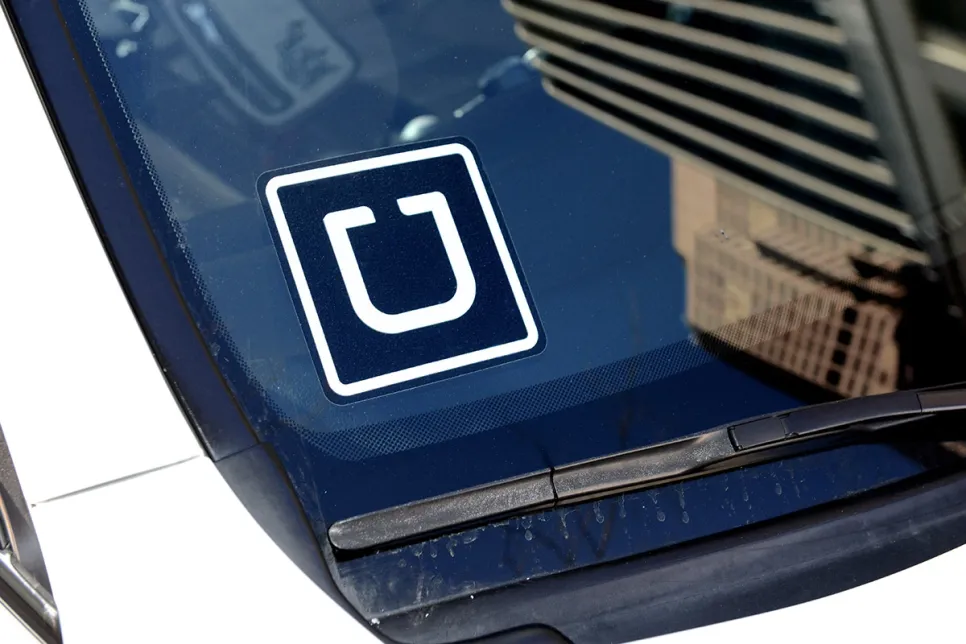EC Might Clear Apple's Tap-to-Pay Scheme
The European Commission is close to approving an Apple proposal to open its tap-to-pay technology to rivals.

Facing the most serious threat yet to its business model, Uber is dusting off a legal argument that it’s a technology platform, not a transportation company, according to Bloomberg.
Now, as a new California law threatens to upend its source of cheap labor, Uber is pointing to the ways in which it has attempted to diversify to put a polish on the argument that its drivers are still independent contractors peripheral to its higher mission. “Drivers’ work is outside the usual course of Uber’s business, which is serving as a technology platform for several different types of digital marketplaces,“ Tony West, the company’s chief legal officer, said.
Uber has generated billions of dollars from the labor of its drivers without the expense of treating them as employees. California is poised to disrupt that business model, and the ride-hailing behemoth is gearing up for another legal fight. Under Assembly Bill 5, which has cleared both houses of the California Legislature, workers in the gig economy would be entitled to a minimum wage and workers compensation if their duties are in the usual course of a company’s business.
The idea that drivers are not core to Uber’s business is one that elicits indignation from critics, but the company has long relied on a version of this argument in attempts to avoid treating drivers as employees. Proponents say the California bill will bring a groundbreaking shift to finally give workers their due. Uber and its allies say that if the bill becomes law, it may not meaningfully change the business model because there are still questions about which workers qualify.
“AB 5 doesn’t all of a sudden change everybody’s status to employee,“ said West. Instead, new criteria would be used to determine whether workers are employees or contractors, he said. “Now, whether or not we win under that test in California remains to be seen.“ Skeptics say Uber may be too optimistic. While it’s used arbitration, litigation and settlements to thwart drivers’ attempts so far to be classified as employees, AB 5 could pose a significant risk to the company, especially if similar measures are adopted in other parts of the U.S., legal experts, academics and financial analysts say.
Under the new law, for its drivers to be considered independent contractors, they must perform work “outside the usual course“ of the company’s business. Uber’s biggest business is ride hailing, but it also has created platforms for restaurant-meal delivery and freight trucking, and the company is working on new services. Uber is “connecting individuals with a work opportunity,“ West said. “When courts understand that, they realize that drivers are not involved in the usual core business of Uber, because Uber is a technology company that operates a marketplace.“